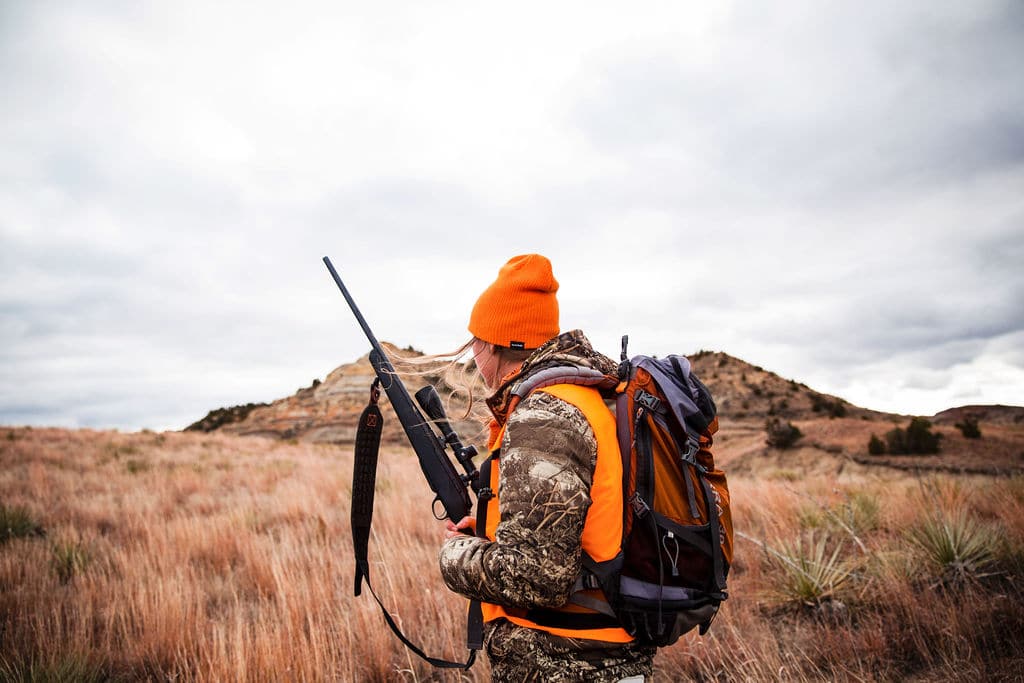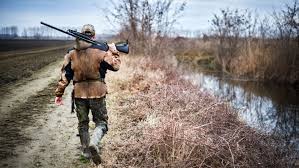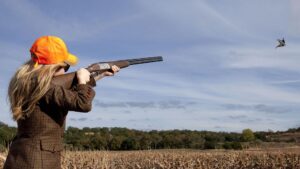Hunting is defined by Webster’s dictionary as “the activity of hunting wild animals or game, especially for food or sport.” It is, in its essence, the activity in which a human hunter utilizes the tools at his or her disposal to stalk, trap, or kill their prey.
Because of the very nature of this sport, there are many different opinions on whether or not hunting is a good thing or bad, but as any avid or casual hunter knows, the benefits are plentiful. The following expounds more upon the benefits of hunting from several different perspectives. Specifically, this discussion focuses on the environmental, ecological, and economic benefits of hunting, as well as how it can impact the bigger picture of daily living.
Get Great Guns And Ammo Deals!
SAFEST NEWSLETTER - WE WILL NEVER SELL YOUR EMAIL
No Spam - No Selling Your Email
Unpack This Article's Arsenal
Hunting and The Environment
Nature is all about balance. Each plant, animal, and natural resource has a stake in the process. Should one element evolve or “breakdown,” then the whole system can suffer. This is true for those populations where hunters’ sights are set. But, contrary to the belief of some, this is a good thing.
Hunters that are focused on the sport and a particular set of game animals are more likely to promote preservation of hunting lands. This, then, aligns with environmentalist beliefs in environmental protectionism. The environment is needed as a place for wildlife to exist.
Therefore, hunting groups will advocate to stop urban reach. This not only preserves the greater environment but can protect an area from such issues as pollution. As such, hunting and hunters can actually help to create a healthier environment for not only humans, but the animals thy are hunting as well, a benefit which is lost on some.
Hunting and Preservation
While many hunters are looked at as the enders of life, for many in the sport, it is actually all about protection. According to the NRA, hunters associated with a particular game type (i.e. deer, duck, turkey) are actually more apt to care for this population and its growth. As a result, hunters become some of the best advocates for preservation of the species.
They take time, energy, and spend countless hours working to preserve the population that they seek to hunt. After all, if a species suffers to the point of complete elimination, then, the sport itself would die and hunters attached to that sport would not benefit.
Hunting as Part of Population Control
One of the most controversial aspects of hunting is rooted in the discussion surrounding the killing of animals. For some species, however, thinning out of the population can be deemed a good thing. For instance, certain animals procreate at a much higher rate than others. As such, there can be a population boom which impacts other wildlife, hurts crops, and causes other concerns in regards to agriculture.
If a population increase occurs rapidly in a species, food sources can run greatly short. The result is animals that will look elsewhere to find alternative feeding sources. As noted prior, these alternative sources can be detrimental to both business and the greater ecosystem. Hunting with a focus on a particular population control in mind can greatly reduce these environmental and economic impacts. It is a benefit and not a hinderance.
Hunting and Its Sales
Hunting is not solely a sport. It is a business. There are millions of dollars exchanged each year all related to hunting. According to the California Department of Fish and Wildlife, for example, in the United States, over 500,000 jobs are connected to the hunting industry with over twenty billion in annual spending. This revenue helps drive parts of the economy and provides an economic boost to those businesses and individuals connected with the sport.
Moreover, as hunting businesses such as ammunition sales, gun sales, and equipment, are—as noted—businesses, that means that they contribute to the economy through annual taxes. This benefits the economy both on the front (commercial sales) and back (taxes) ends. This extends to state revenue systems as well. As such, hunting is good in that it creates a boost to domestic economies and a hunter’s impact can go far beyond their own wallet.
Hunting with Restrictions
One of the main reasons that hunters and those that support this community feel it is good is because it is not without its restrictions. As any hunter knows, most developed countries or areas where hunting is popular have rules and regulations surrounding the sport.
This, then, allows the sport to be regulated to the best of the government’s ability and allows for clear parameters to be set in place.
As such, not only are hunters protected but so, too, are the animals that they are hunting.
Frivolous hunting is limited and the animals are protected from poachers and others not truly respectful of the sport.
Hunting as Source of Food
While hunting is mostly seen as having a level of sport attached to it, there are other benefits and outcomes that result, too. Specifically speaking, it provides a source of food. Hunters can kill game that allows their family to be fed and also provides, in some locations, for a meat industry that employs and feeds many people. Restaurants and grocery stores an utilize game meat in their repertoire of product offerings allowing for nutritious product.
Beyond just the harvesting of the meat is the nutritional value associated with it. Game animals tend to be on the leaner side of the protein scale making them healthier for human consumption than fattier meats. This makes them healthier for most diets than other animal food sources. From quail to deer and more, more game meats mean more people having access to diets that are more nutritious. Hunters should all take pride in this.
Conclusion
Hunting, its benefits, and its drawbacks will most always bring out debate between the sides that are entrenched in it. But it should not be viewed as a singularly-faceted activity.
There are many different industries, people, and animals that are impacted by this sport. Hunting helps to drive the economy, allow for governmental oversight, creates tax revenue and more. It also helps to create jobs and other economic boosts.
Further, hunting benefits the environment by protecting animals and their homelands that might otherwise be infringed upon by big business and urban growth. For these reasons, hunting is assuredly a positive for the environment, the economy, and the world. IF you are interested in getting started check our article on the best rifles.
Recommended Reading
Hunting With a Rifle or a Bow: What’s Best For New Hunters?













One Response
very good!